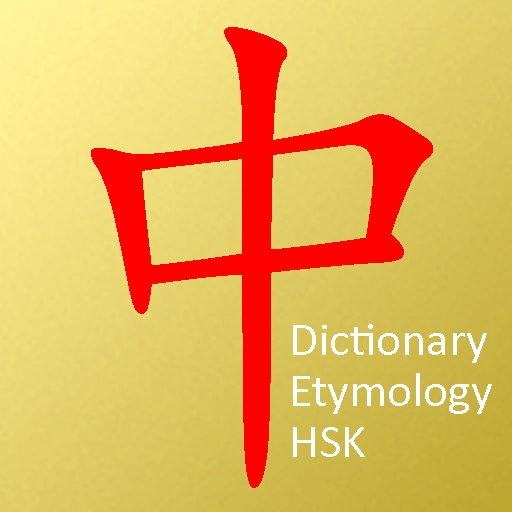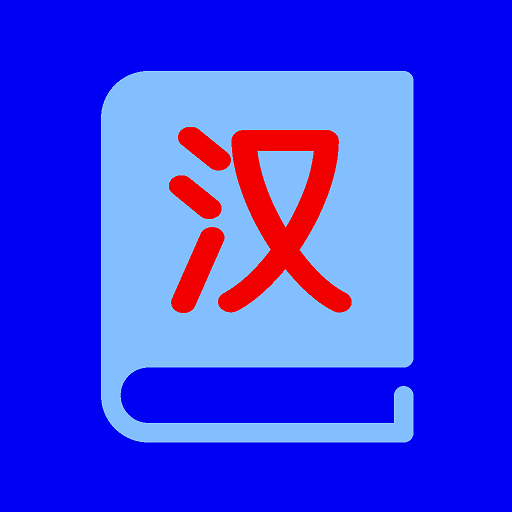

SmartHanzi
เล่นบน PC ผ่าน BlueStacks - Android Gaming Platform ที่ได้รับความไว้วางใจจากเกมเมอร์ 500 ล้านคนทั่วโลก
Page Modified on: 18 สิงหาคม 2564
Play SmartHanzi on PC
It includes Chinese dictionaries for English, French and German.
PARSE AND LOOKUP
A full text can be copied with immediate access to unknown words. Lookup shows meaning, related words and character details with multiple cross-links. Users can customize shown/hidden items to keep presentation simple and clear.
This "web" of words and characters easily accessible from the initial context strongly helps memorizing.
Besides recognizing the correspondence between simplified and traditional variants, SmartHanzi also recognizes multiple traditional variants. For instance, searching/parsing 真 will show both 真 and 眞, according to what is present in the selected dictionary. Or it will recognize equally well 為/爲 or 眾/衆.
SEARCH DICTIONARIES
Search by Chinese, meaning or pinyin.
For pinyin, the tone must be specified for single characters. It needs not (and must not) be specified for words. For example: da4, xue2, daxue, xuesheng are valid searches (no result for da4xue2 or xue2sheng1).
MY WORDS
Words can be flagged with red (not known), yellow (review) or green (known), from various lists or lookup pages. "My words" will show the full list of unknown (or review or known) words.
"My results" will show the same kind of lists per HSK level.
TESTS
Simple quizzes (flashcard, multiple choice) per HSK level. The basic option is with short tests, mistaken results are retried first. Users can prefer longer tests, review unsure words or check known words.
Results are saved, user's progress is shown over the last 12 months.
CHARACTER SERIES
Character lists can be shown per Kangxi radical, phonetic series (Wieger) or etymology (Kanji Networks, Wieger).
ETYMOLOGY
SmartHanzi shows the etymology of Chinese characters from:
- The Etymological Dictionary of Han/Chinese Characters by Lawrence J. Howell and Hikaru Morimoto (English, 6000+ characters, former "Kanji Networks").
- 177 etymological lessons from Dr. L. Wieger, S.J. "Caractères chinois" (French, still to be completed).
These two sources do not have the same approach. Wieger's book was first published in 1899 (French) and 1915 (English). It is based on the "Shuowen jiezi" (說文解字/说文解字) published around 120 CE, a classical reference in China. It does not include the 20th and 21st century discoveries and therefore is technically wrong in many respects. However, based on the Shuowen Jiezi, it reflects the Chinese tradition and culture. It is what many Chinese know about their writing.
There is definitely a need for research about the real origin and development of Chinese characters. Howell and others like Axel Schuessler contribute to this research.
For most students, whether the etymology is real or just traditional does not matter. The point is to tet some guidance and reference points: Se non è vero, è ben trovato. Consciously or not, Chinese children learn a lot of etymology at school and at home.
From this perspective, etymology is not only for scholars or experts. Getting familiar with basic components and their explanation will effectively help students at all levels, both for remembering known characters and take up unknown ones.
TABLETS
Landscape view is best for tablets.
เล่น SmartHanzi บน PC ได้ง่ายกว่า
-
ดาวน์โหลดและติดตั้ง BlueStacks บน PC ของคุณ
-
ลงชื่อเข้าใช้แอคเคาท์ Google เพื่อเข้าสู่ Play Store หรือทำในภายหลัง
-
ค้นหา SmartHanzi ในช่องค้นหาด้านขวาบนของโปรแกรม
-
คลิกเพื่อติดตั้ง SmartHanzi จากผลการค้นหา
-
ลงชื่อเข้าใช้บัญชี Google Account (หากยังไม่ได้ทำในขั้นที่ 2) เพื่อติดตั้ง SmartHanzi
-
คลิกที่ไอคอน SmartHanzi ในหน้าจอเพื่อเริ่มเล่น



